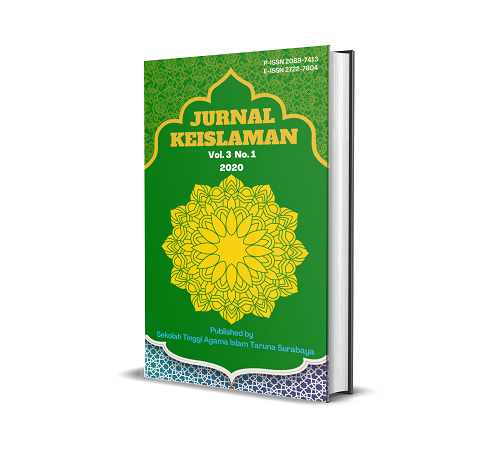KONSEP MASLAHAH MENURUT IMAM MALIK DAN ALTUFI (STUDI KOMPARATIF TENTANG MASLAHAH IMAM MALIK DAN NAJM AL-DIN AL-TUFI)
Abstract
Among the sources of Islamic law which is still disputed by scholars’ argumentis maslahah. Some scholars reject it, but most agree make maslahah as one of the sources of Islamiclaw in matters of ijtihad. Imam Malik considered as a pioneer scholar who makes maslahah as onesource of law ijtihadnya. His view was followed by the scholars 'other, one of whom is Najm al-Din al-Tufi, a cleric' Hambali. However, the twoleaders of thought are not the same, even in certaincases the difference is very sharp, although in certain parts have in common. In the view of Malik,maslahah serve as asource of Islamic law in matters which are not discussed formallyby nas and ijma ', butmust not conflict with the spirit of the passage as a whole. In contrast, al-Tufi maslahahgood use in the problem discussed by nat/ijma ', or not. As for the area applicationsmaslahah, both agree that that maslahah only be used in matters mu'amalah.Copyright (c) 2020 Imas Setiyawan

This work is licensed under a Creative Commons Attribution-ShareAlike 4.0 International License.
Authors who publish with this journal agree to the following terms:
- Authors retain copyright and grant the journal right of first publication with the work simultaneously licensed under a Creative Commons Attribution-ShareAlike that allows others to share the work with an acknowledgement of the work's authorship and initial publication in this journal.
- Authors are able to enter into separate, additional contractual arrangements for the non-exclusive distribution of the journal's published version of the work (e.g., post it to an institutional repository or publish it in a book), with an acknowledgement of its initial publication in this journal.
- Authors are permitted and encouraged to post their work online (e.g., in institutional repositories or on their website) prior to and during the submission process, as it can lead to productive exchanges, as well as earlier and greater citation of published work (See The Effect of Open Access).






















